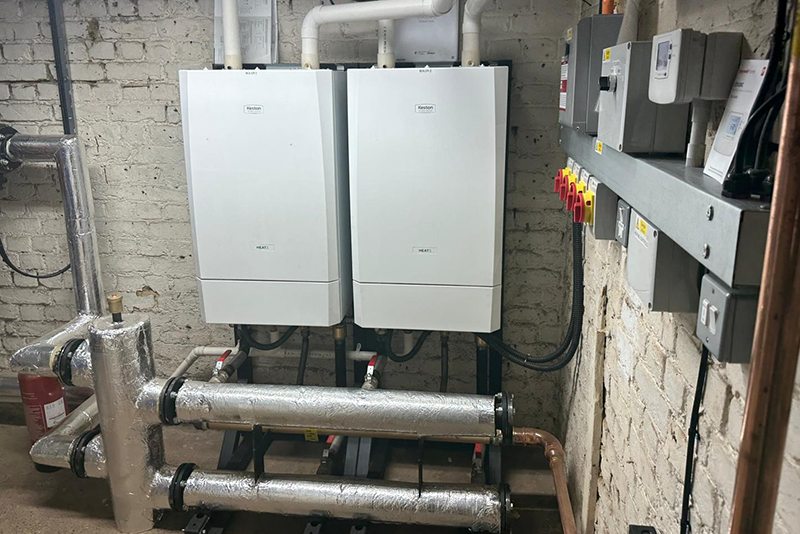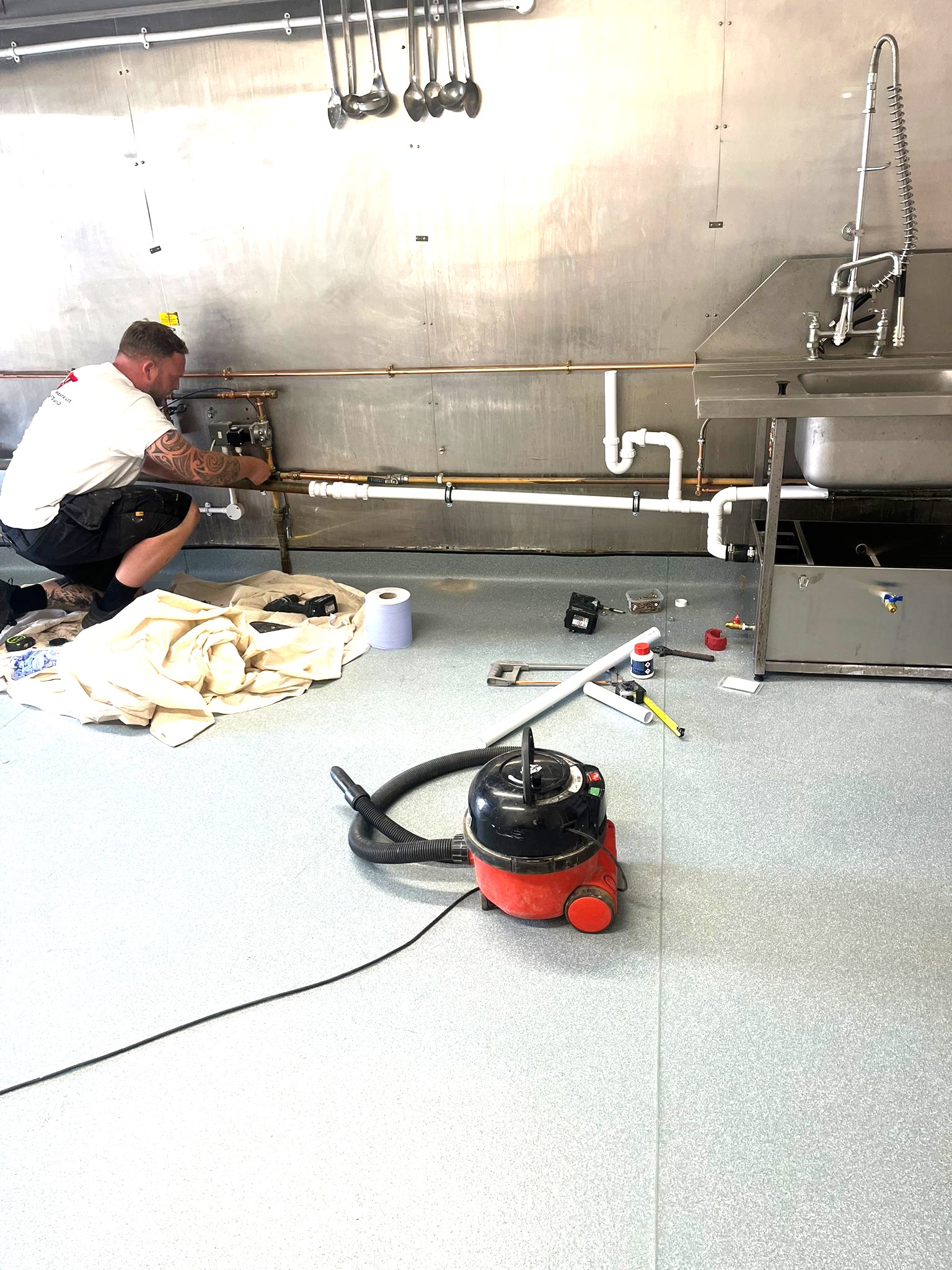A Complete Guide To Industrial Heating Systems

Industrial heating systems are essential for businesses operating in various industries, including manufacturing, agriculture, and construction. They are designed to provide warmth and heat to large commercial spaces, which is crucial for the comfort and safety of employees and customers. In this blog, we will discuss everything you need to know about industrial heating systems, including types, components, fuel types, and maintenance.
Types of Industrial Heating Systems
There are three main types of industrial heating systems: convection heating systems, radiant heating systems, and hybrid heating systems.
Convection heating systems work by circulating hot air throughout the space. These systems are ideal for heating large open spaces and can be used in buildings with high ceilings. Radiant heating systems, on the other hand, work by radiating heat from a source directly to the objects in the room. These systems are ideal for heating smaller spaces and can be used in buildings with lower ceilings.
Hybrid heating systems combine the benefits of convection and radiant heating systems. They use a combination of hot air and radiant heat to provide even and efficient heating throughout the space.
Common Industrial Heating System Components
Industrial heating systems are made up of several components that work together to provide heat to the space. Some common components of industrial heating systems include:
- Boilers: Boilers are used to heat water, which is then circulated through the building to provide heat.
- Furnaces: Furnaces are used to burn fuel and generate heat, which is then distributed throughout the building.
- Heat Exchangers: Heat exchangers are used to transfer heat from one fluid to another, such as from hot water to the air.
- Burners: Burners are used to ignite fuel and generate heat.
Industrial Heating System Fuel Types
Industrial heating systems can be powered by several types of fuel, including natural gas, propane, fuel oil, electric, and biomass.
Natural gas is a popular choice for heating systems due to its low cost and high efficiency. Propane is another popular choice, especially in areas where natural gas is not available. Fuel oil is a common choice for large industrial heating systems, but it can be more expensive than other fuel types. Electric heating systems are often used in smaller commercial spaces, but they can be more expensive to operate. Biomass heating systems use renewable resources, such as wood chips or pellets, to generate heat.
Factors to Consider When Selecting an Industrial Heating System
When selecting an industrial heating system, several factors should be considered, including the type of industry, facility size and layout, budget, and environmental considerations.
The type of industry can have a significant impact on the type of heating system that is needed. For example, a manufacturing plant may require a different heating system than a retail store.
Facility size and layout are also essential factors to consider. Large open spaces may require a different heating system than smaller, more confined spaces. Additionally, the layout of the building can impact the effectiveness of the heating system.
Budget is also an important consideration when selecting an heating system. Some fuel types and heating systems can be more expensive to install and operate than others.
Environmental considerations, such as energy efficiency and emissions, should also be taken into account when selecting an industrial heating system.
Benefits of Regular Maintenance of Industrial Heating Systems
Regular maintenance of industrial heating systems is essential to ensure that they operate efficiently and safely. Some benefits of regular maintenance include:
- Improved Efficiency: Regular maintenance can improve the efficiency of the heating system, reducing energy costs and improving overall performance.
- Increased Safety: Regular maintenance can identify potential safety hazards, such as leaks or malfunctioning components, before they become a problem.
- Longer Lifespan: Regular maintenance can extend the lifespan of the heating system, reducing the need for costly repairs and replacements.
Common Issues with Heating Systems and Troubleshooting Tips
Industrial heating systems can experience several common issues that can impact their performance. Some common issues include insufficient heat, uneven heating, and high energy bills. Here are some troubleshooting tips for these issues:
- Insufficient Heat: If the heating system is not providing enough heat, it may be due to a clogged air filter or a malfunctioning component. Check the air filter and replace it if necessary. If the problem persists, contact a professional to inspect the heating system.
- Uneven Heating: Uneven heating can be caused by several factors, including inadequate insulation, blocked vents or ducts, or malfunctioning components. Ensure that the vents and ducts are clear of obstructions and that the insulation is adequate. If the problem persists, contact a professional to inspect the heating system.
- High Energy Bills: High energy bills can be caused by an inefficient heating system or poor insulation. Regular maintenance can improve the efficiency of the heating system, reducing energy costs. Additionally, ensuring that the building is adequately insulated can reduce energy costs.
Summary
Industrial heating systems are essential for businesses operating in various industries. They are designed to provide warmth and heat to large commercial spaces, which is crucial for the comfort and safety of employees and customers. When selecting an industrial heating system, several factors should be considered, including the type of industry, facility size and layout, budget, and environmental considerations.
Regular maintenance of industrial heating systems is essential to ensure that they operate efficiently and safely, and troubleshooting common issues can help to maintain their performance. By understanding the different types of industrial heating systems, components, fuel types, and maintenance requirements, businesses can ensure that they have a reliable and efficient heating system that meets their needs.


